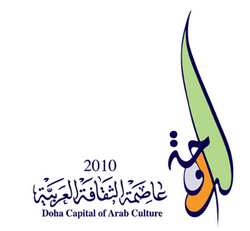| 2010 Arab Capital of Culture | |
|---|---|
 | |
| Dates | 2010 |
| Location | |
| Website | |
Doha, Qatar was chosen as the 2010 Arab Capital of Culture , an initiative of UNESCO's Cultural Capitals Program to promote Arab culture and encourage cooperation in the Arab world. [1] [2] The Qatari government prepared for the festival in different ways, including building an $82 million cultural village. [3] [4]